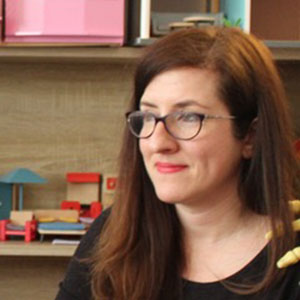
Kyriaki Kentigkeleni
Country: …
Organization: …
Short CV
Kyriaki Kentigkeleni PhDc, MSc, MD, Pg.D. is Child & Adolescent Psychiatrist, PCA Counsellor & Psychotherapist, Child-Centred Play Therapist & Family-Centred Therapist, group facilitator, director and scientific coordinator of Centre for Psychotherapy & Counselling for Children & Families. Her first MSc is in “Social Psychiatry” and the second in “Healthcare Management”. Despite her medical background, since the beginning of her specialization she started her training in PCA and CCPT both in Greece and in the US and integrated PCA in her work with children-adolescents and families. She is also trained in Online & Telephone Counselling and in Clinical Supervision (including online and telephone working) at Counselling Tutor, UK. She is cooperating with Psychosocial Studies’ Laboratory as group facilitator and trainer and head of the department of research. She recently became an APCCA practitioner and scientific associate of University Children & Adolescents Psychiatric Department of University General Hospital of Alexandroupoli, Greece.
Short presentation
(together with: Ani de la Prida)
Title: Sharing our learning of how digital technology can promote polyphony, creativity, and learning on a person-centred creative art in therapy course
Polyphony is a concept that acknowledges multiple voices or perspectives that co-exist without any one voice being superior. In person-centred learning polyphony is valued. It can promote creative relational processes and dialogue that foster a dynamic co-construction of knowledge and ideas between group members. On our course at APCCA we use a peer assessment model devised by Liesl Silverstone, in consultation with Carl Rogers. In this model students are responsible for collaboratively contracting, devising some of the course requirement and assessing each other’s portfolios. Learning, meaning, and creativity are developed in the tensions, interactions and dialogue between different, and often opposing ideas and voices.
In 2020 we were thrust into a changing world of online therapy and online learning. This posed many challenges for training and working with creative arts in therapy. We had to adapt. Digital technology and online environments can sometimes be seen as an inferior learning environment to a more traditional in -person communication and settings. But what we learned was that the unique properties of digital technology can promote, enhance and deepen polyphony, creativity, and learning on a person-centred course. We found that digital media can be a helpful tool that promotes learning in new and unexpected ways. The possibilities for use of digital media are diverse and opens exciting new educational dimensions. In this presentation we would like to share some of what we have learned and discovered with our students about the value of digital technology in person-centred training.

